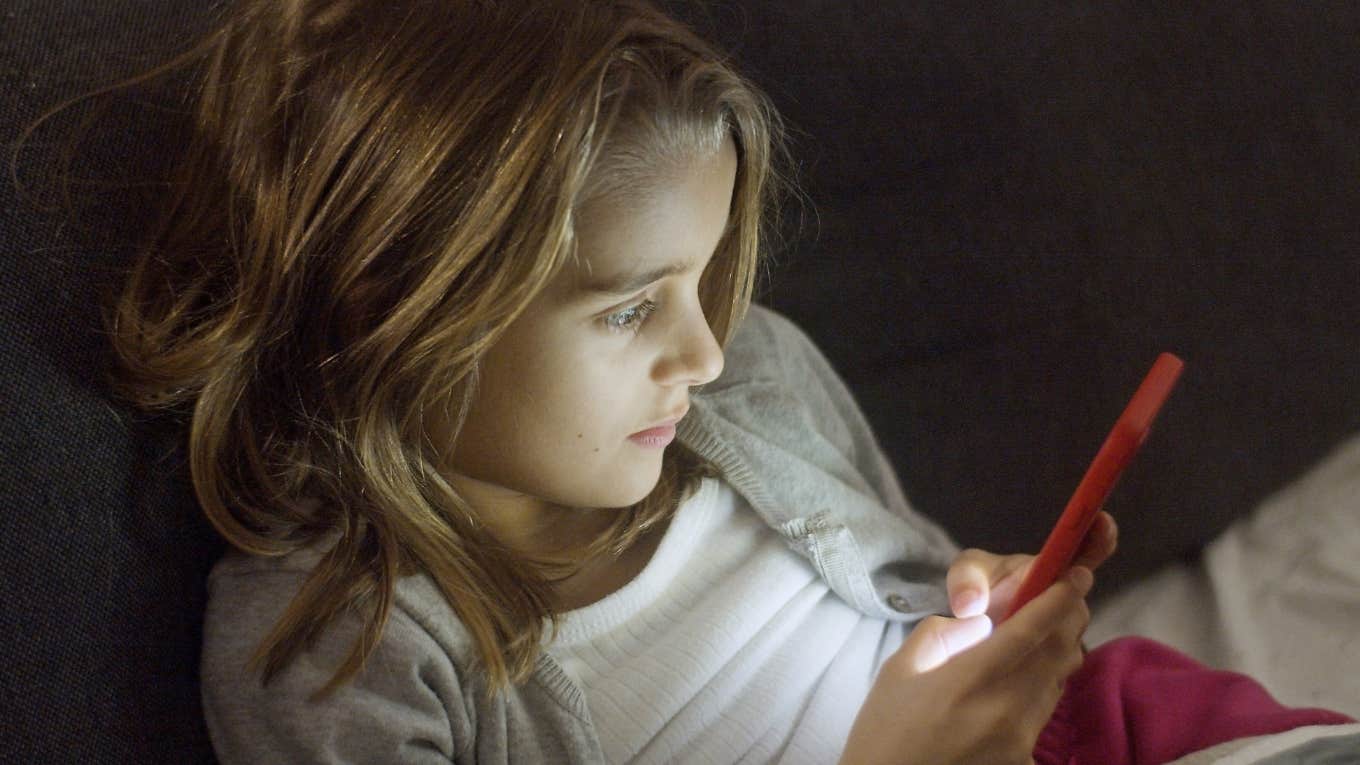Parenting Coach & 'Screen-Positive Mama' Reveals The Right Way For Parents To Manage Kids' Social Media—'12 Is Too Young For A Phone'
It's all about modeling behaviors — and not getting them a phone until they're ready.
 Kampus Production / Pexels / Canva Pro
Kampus Production / Pexels / Canva Pro When it comes to kids and things like screen time and social media usage, it seems that the more research on the matter, the more dangerous and damaging it appears to be.
But with our lives — and especially kids' social circles — so intricately entwined with the online world, how are parents supposed to manage this without essentially making their kids accidental outcasts?
A parenting coach on TikTok has an answer, and unlike some other experts, her recommendations don't start with advising parents to forbid their kids from having a phone.
Dr. Chelsey Hauge-Zavaleta laid out the best way for parents to manage their kids' social media.
Dr. Chelsey Hauge-Zavaleta, a child development expert and self-professed "screen-positive mama," is an expert on all things child-rearing, and her advice about cellphones and social media is a bit different from the "no phones until they're 35!" advice you might usually hear.
And while it requires a bit more effort than just making a "no cellphone" rule, it's also a lot more proactive and empowering for kids and parents alike.
She said parents should wait until high school to get kids cellphones because younger brains are too underdeveloped to navigate social media.
In a recent video, Dr. Chelsey began with a role-play of a situation that will be all too familiar to many parents — a fifth grader who is insisting they need a phone and social media accounts in order to be accepted by their friends.
Hauge-Zavaleta believes fifth grade really is way too young for a kid to have a phone. "The only situation in which I'd be getting a fifth grader a phone is if they're walking home from school," she said, in which case she'd buy her child a flip phone for the purposes of staying in touch only.
Why? "Access to social media during these really tender developmental years is truly problematic," she said. It's not the explicit or inappropriate content that is of concern, but rather, she explained, "the social and emotional well-being."
In short, tweens' and early teens' brains are at a stage of development that leaves them not quite equipped to deal with all the messaging from content and the social repercussions of being on social media.
Dr. Hauge-Zavaleta believes that this actually presents an opportunity for parents to help their kids grow and develop by teaching them the skills they need to safely be on social media.
Parents should model how to navigate the social dynamics and psychological impacts of social media.
Dr. Hauge-Zavaleta said that rather than just relenting and giving a fifth grader a phone and a TikTok account, parents spend the elementary and middle school years "leaning into brain and nervous system development" by "nurturing the relationship" with their kid so they can provide opportunities to learn critical social and self-esteem skills needed to use social media healthily.
What does this look like? Dr. Hauge-Zavaleta explained that "while your teen is not gonna wanna scroll through TikTok with you, your 8 [through] 13-year-old may." And this is a major opportunity for teaching them "how to engage with complex social content."
She used as an example being left out of a mom-group hang-out. "I might say, wow, those are some of my friends, that feels kind of weird to see them here [without me]," thus modeling for your kids how to manage a situation they are definitely going to experience at some point—being left out, owning your feelings, but ultimately not taking it too personally.
"I'm showing them how to cultivate a sense of self and not lose themselves in the inclusion/exclusion facilitated by social media," she explained.
Parents should also teach their kids media literacy skills so that they can understand and think critically about the content they're encountering.
You need only look at the state of our culture nowadays to see that media literacy is at an all-time low. At this point, we all know at least one person who believes something truly unhinged about politics, science, or their own health, simply because they saw it on social media and took it as gospel.
To combat this, Dr. Hauge-Zavaleta suggested watching content with your child and then asking questions like "Who do you think made that?" and "Why do you think they thought that?"
This gives your child a healthy skepticism and teaches them to think critically about what they're seeing and hearing — a lesson we could all use a dose of in this propaganda-steeped era.
Finally, she urged parents to model boundaries when it comes to social media use. "That means putting down my phone, engaging with my children, letting text messages, TikTok, etc., go by the wayside" to show kids that they don't have to be leashed to their phones all day. Cell phones and social media are literally addictive, after all.
Dr. Hauge-Zavaleta said following this plan will prepare them to begin moving into the online world equipped to allow it to enhance their lives rather than take them over — another lesson we could all probably stand to learn!
John Sundholm is a news and entertainment writer who covers pop culture, social justice and human interest topics.

